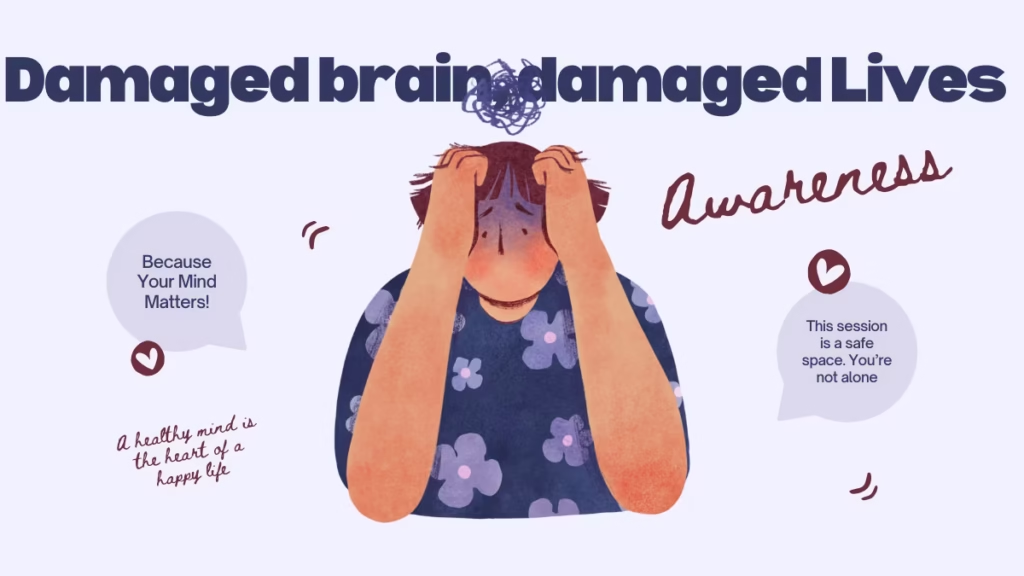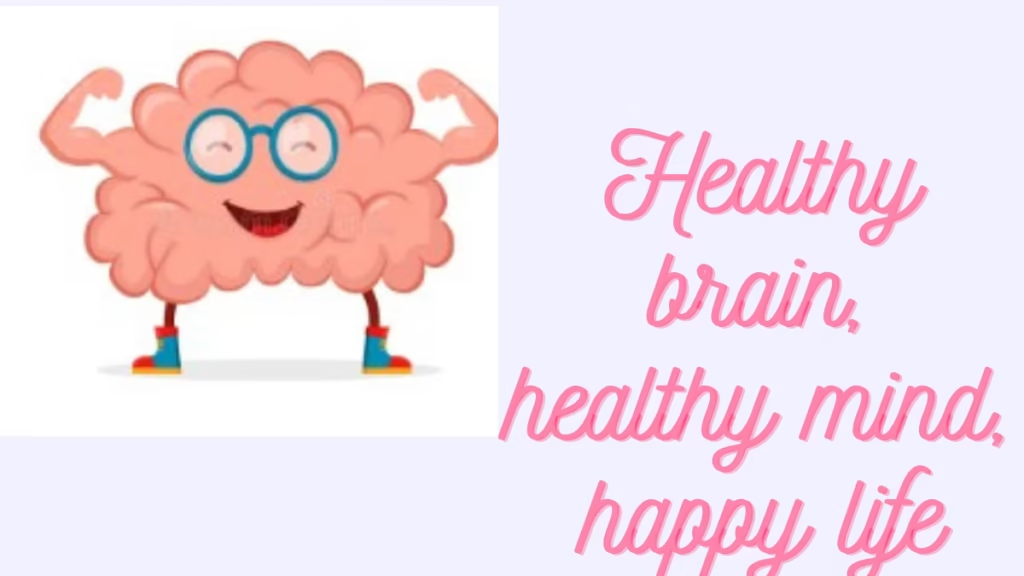When we talk about living a healthier, happier life, we usually focus on diet, fitness, or stress management. But there’s something even more foundational we tend to ignore: our brain and our healthy mind.
Surprisingly, the brain—the very organ that controls everything we do—is often misunderstood, overlooked, or worse, taken for granted. But if your goal is to live a mentally and emotionally well-balanced life, you must start with a healthy mind and brain.
Let’s explore why your brain is ground zero for mental health, how it impacts behavior, and what you can do starting tomorrow to care for the organ that powers your entire experience of being alive.
Understanding the Brain-Mind Connection
Many people are confused about the difference between the brain and the mind. Is the mind just thoughts and feelings, while the brain is the hardware? Are they separate? Spiritual traditions often speak of the mind and soul as distinct from the body, but neuroscience tells us something very clear:
The brain creates the mind.
The moment-by-moment physical functioning of your brain generates your thoughts, emotions, behaviors, and decision-making. If your brain isn’t functioning properly—due to injury, poor nutrition, or stress—your mind will reflect that dysfunction.
Consider Alzheimer’s disease: a degenerative brain disorder that often robs individuals of memory, personality, and recognition of loved ones. The damage is physical, but the impact is mental, emotional, and deeply human.
So when we talk about a “healthy mind,” we’re really talking about a healthy brain first.
Damaged Brains, Damaged Lives
These weren’t just people who “chose to be evil”; many had brain trauma that affected their judgment, impulse control, and empathy.
This brings up a profound question: How much of human behavior is rooted in brain health?
Rather than immediately labelling someone as “bad,” we must start asking: Why? What happened to their brain? Could it have been prevented? Could it be healed?
Rehabilitating the brain can transform a life. Yet society rarely treats it that way. We lock people up, stigmatize them, or ignore them—but rarely consider their brain health. As Fyodor Dostoevsky once said, “The degree of civilization in a society can be judged by entering its prisons.”

What’s Damaging Our Brains?
Many of us think of brain injury as something that only happens in car crashes or extreme sports. But brain damage can begin even before birth—and continue silently throughout our lives.
Here are some surprising and not-so-surprising ways we damage our brains every day:
- Prenatal Exposure
With marijuana legalized in many places, studies now show that babies are increasingly being born with THC in their systems—a 1,700% increase. This has serious consequences: higher chances of behavioral issues, attention problems, and reduced empathy later in life. - Diet
The Standard American Diet (appropriately acronym SAD) is a brain health disaster. Sugar, processed food, and junk snacks—like Pop-Tarts—can spike blood sugar and create inflammation, which disrupts brain function. When public schools serve sugary foods as free lunches, we’re setting kids up for long-term cognitive and emotional challenges. - Low Blood Flow
Doctors use the acronym BRIGHT MINDS to assess brain health, with “B” standing for blood flow. Poor circulation is the #1 brain imaging predictor of Alzheimer’s. Lack of exercise, sedentary behavior (think hours of Netflix), and poor diet all contribute. - Traumatic Brain Injury (TBI)
This might be the most overlooked brain health issue of all. Your brain is the consistency of soft butter, and it’s housed in a hard skull with sharp bony ridges. Mild head trauma—from a fall, sports injury, or car accident—can have long-term effects on mood, memory, and behavior.
Estimates that 3 million new concussions occur in the U.S. every year, and over the last 30 years, more than 90 million people have suffered one. Many go undiagnosed. The result? A huge population suffering silently with symptoms like depression, anxiety, ADHD, addiction, and even homelessness—all rooted in brain injury.
Tiny Habits for a Healthy Mind and Brain
So, what’s one thing you can start doing tomorrow morning that’s better for your brain? According to Dr. Amen, it’s not some grand 10-step plan—it’s about tiny daily habits that make a massive difference.
“Brain and mental health are a daily practice, just like physical health.”
You wouldn’t hit the gym once a week and expect six-pack abs. The same goes for your brain. You need to work it out every day—with simple, mindful choices.
Start With This Question:
Every time you eat, move, or decide, ask yourself:
Is this good for my brain or bad for it?
It’s a three-second habit. And yes—even a second grader can figure it out. Dr. Amen used to play this with his daughter, Chloe, called “Chloe’s Game.”
- Frozen blueberries? Two thumbs up – God’s candy.
- Avocados? Two thumbs up – God’s butter.
- Heading a soccer ball? Thumbs down – very stupid.
- Orange juice? Tricky—it may seem healthy, but it’s just sugar in disguise once the fiber is removed.
This simple habit can rewire how you make everyday decisions—and protect your brain in the long term.
Set the Tone Each Morning
The words you say when you wake up matter. Instead of “Ugh, I’m so tired,” try:
“Today is going to be a great day.”
It’s not about toxic positivity—it’s about nudging your brain in a better direction. Your subconscious is always listening. When you frame your day with hope, you start making better choices to live into that reality.
Close the Day With Gratitude
Before bed, ask yourself:
“What went well today?”
This is one of the most powerful tools to master your mind—not ignore your pain but guide your focus.

Final Thoughts: It’s Time to Take Brain Health Seriously
We live a social life or a world where appearance is so important, but if you do not have healthy mind, you will feel suffocated inside. So if you want to be truly healthy, then the first thing you have to do is to make your brain healthy.
The good news? You don’t need to overhaul your life overnight. You just need to start asking better questions, making tiny shifts, and treating your brain like the life-giving powerhouse it is.
Because a healthy brain is where a healthy mind—and a better life—begins.
Stay healthy and happy with UState Pulse.